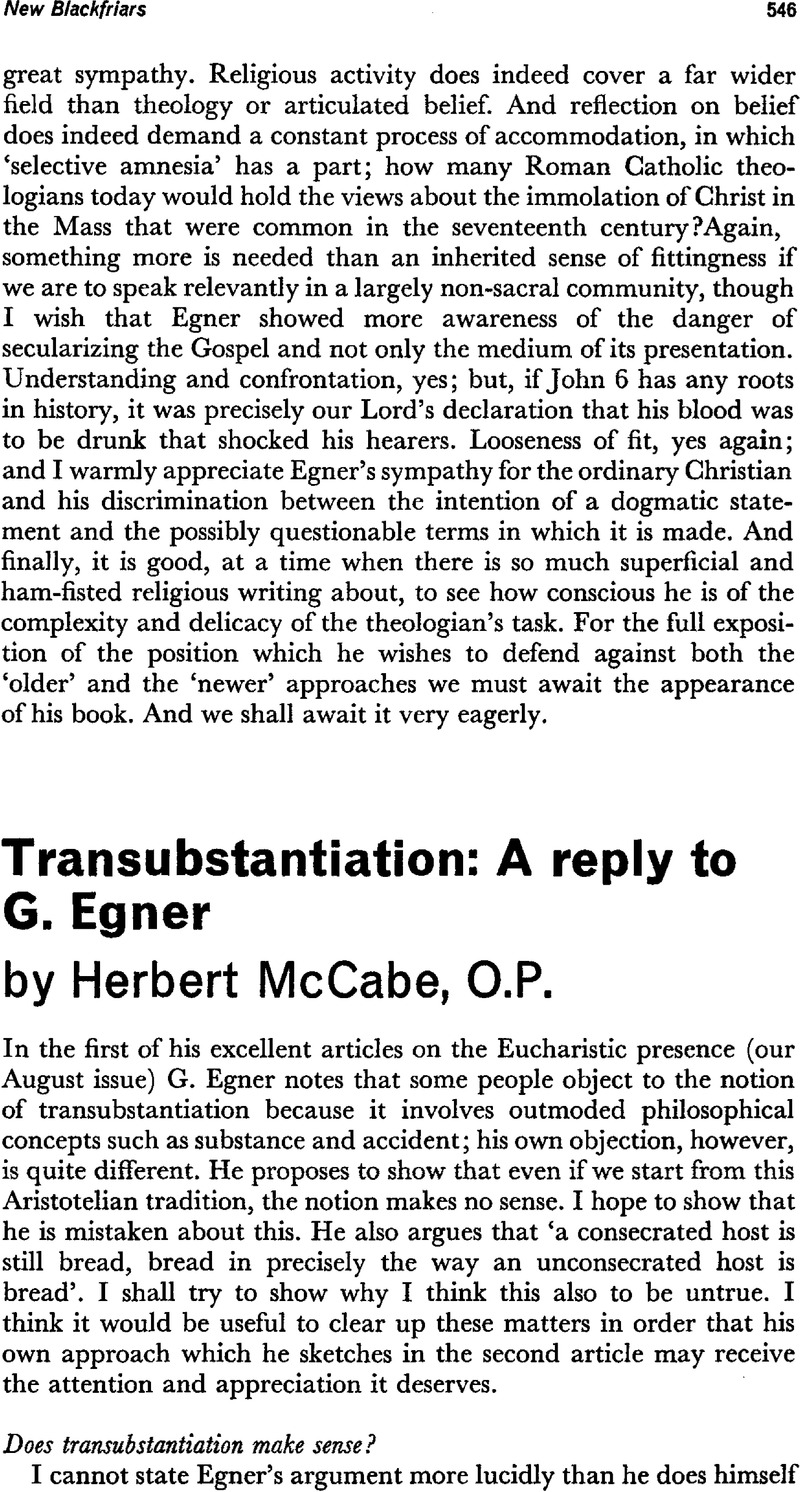No CrossRef data available.
Article contents
Transubstantiation: A reply to G. Egner
Published online by Cambridge University Press: 02 July 2024
Abstract

- Type
- Reply
- Information
- Copyright
- Copyright © 1972 Provincial Council of the English Province of the Order of Preachers
References
page 549 note 1 Cf. here the famous Zen question 'What is the sound of one hand clapping?'
page 549 note 2 On the distinction between analogy and metaphor, see Brian Wicker's article in this issue. I may perhaps also be allowed to quote from the notes to my own translation of Questions 12 and 13 in the Prima Pars (Summa Theologiae, Vol. 3, Eyre & Spottiswoode, 1964, Appendix 4, p. 106). 'We might ask why he (Aquinas) is not content to say simply that our language about God is metaphorical. He does not say this because he wants to distinguish between two different kinds of things that we say about God; between statements like “The Lord is my rock and my refuge” and statements like “God is good". The first of these is quite compatible with its denial‐"Of course the Lord is not a rock”, whereas the second is not. We would not say “God is not good”, though we are quite' likely to say “God is good, but not in the way that we are". It is an important point about metaphor that while we can easily say “God is not really a rock” we cannot so safely say “The Lord is not a rock in the way that Gibraltar is". For one thing there is only one way of being a rock, but more importantly, being a rock in the way that Gibraltar is is what the poet has in mind. Unless we think of God as being just like Gibraltar‐although, of course, not really being a rock‐we betray the poet's meaning. Qualification emasculates his meaning in a way that contradiction does not. In the case of “good”, however, since there are in any case many ways of being good amongst creatures, there is nothing incongruous in saying “He is good though not in our way".'
page 550 note 1 Aquinas does not hold that transubstantiation consists in the annihilation of the bread and its replacement by the body of Christ. This would indeed, as the Thirty‐Nine Articles put it, take away the nature of a sacrament. for Aquinas the Eucharist is sacramental just because it is bread that becomes the body of Christ.




